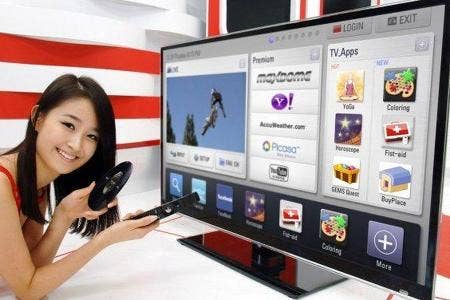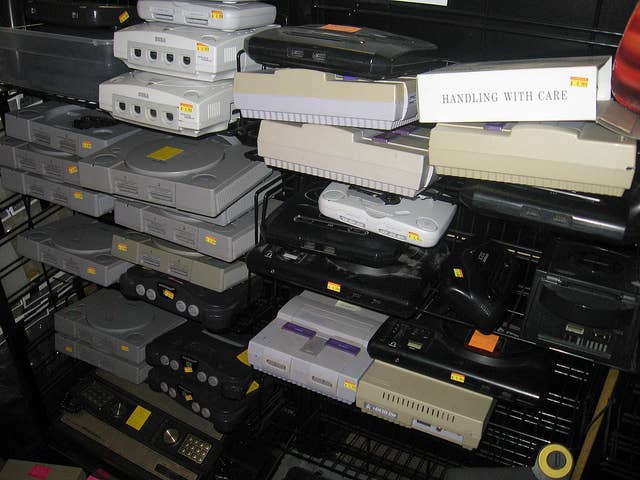The End of the Console Era?
Rumours of the console's death have been greatly exaggerated
Every now and then, tech pundits and relentless self-promoters within the games industry strike upon a pinch of rhetorical gold dust - a statement that is simultaneously popular and simple, yet headline grabbing and controversial. They then proceed to parrot that statement with increasing force until everyone either accepts its truth, or simply gets so tired of constantly arguing with it that they allow it to pass by without much more than a sigh and a roll of the eyes.
You can spot these statements a mile off (and by extension, start seriously questioning the credibility or wisdom of the people making them), because they're normally sweeping generalisations about markets that are actually quite complex, they're almost always fundamentally technically illiterate, and they've got an alarming habit of taking the form of a death knell.
"If PC gaming died, it came back rather quickly as a surprisingly sprightly and rosy-cheeked zombie"
The most popular one for around a decade, for example, was the old industry favourite, "PC gaming is dead". Ding, dong, toll the funeral bell - except meanwhile, Blizzard was building the most successful and profitable game ever launched, exclusively on the PC platform. A proliferation of cheap, easy to use development tools were inspiring the creation of an indie game development scene that's gone from strength to strength both commercially and creatively. Valve's Steam was creating a distribution and sales network for software that still puts just about every other gaming platform to shame in terms of accessibility and convenience. If PC gaming died, it came back rather quickly as a surprisingly sprightly and rosy-cheeked zombie.
In that context, what are we to make of the present rush of people queuing up to pronounce console gaming dead? It's all over!, they sniff, wiping away crocodile tears and dreaming of the headlines their dramatic statement will generate. The next generation will be the last. Who needs consoles any more, when you'll have a phone more powerful than an Xbox 360, or a television packed to the gills with 3D chipsets and streaming gubbins, or a microwave oven that does a pretty damn reasonable job of playing Crysis?

As is generally the case with statements of this description, the claim that consoles are about to shuffle off the mortal coil is based on a superficial understanding of technological progress - but one which is not married to any deeper understanding of the technology or economics involved, or to any particular sense of imagination. The PC was "dying" because consoles were getting more powerful and going online, and piracy was rampant; all things which were true, but utterly outweighed by the pace of innovation and change which the PC market underwent. Similarly, consoles are "dying" because other devices are becoming increasingly powerful and going online; sound familiar?
In the case of consoles, it is absolutely undeniable that devices such as mobile phones and even televisions themselves are rapidly becoming more powerful, as extremely low-cost, high-powered chipsets are built into those devices. There is no question but that at some point in the next few years, TV sets are going to start integrating support for "Apps" of some description, which will make the existing TV gaming market (a niche area focused on low-powered puzzle games served through existing set-top boxes) look much like the old mobile gaming market was before the iPhone.
Does that mean the end for videogame consoles? No. Those predicting the death of the console are ignoring a few extremely important factors. For a start, your phone isn't your console - and even if you can connect a phone to a TV to play games of some description, the experience we're talking about is radically different. Most people who play console games today probably also play mobile phone games; the experiences are more complementary than competitive, and there's plenty of room in the market for both. The idea that mobile phone games will replace larger-scale entertainment experiences in the living room, rather than existing alongside them, is nonsense. One might equally argue that the existence of magazines negated the need for books.
"The idea that mobile phone games will replace larger-scale entertainment experiences is nonsense. One might equally argue that the existence of magazines negated the need for books"
But what of the much-vaunted "smart TV"? Let's face it, when most people confidently predict the death of the console, what they actually mean is "Apple is going to launch an Apple TV product which will demolish the console market". Once you've got a TV that's "smart", why would you ever need another box to sit underneath it playing games?
That point of view makes a number of extremely sweeping assumptions about both the gaming market and the television market - several of them demonstrably incorrect. For a start, it assumes that any Smart TV product will have games as a major focus in its design. This is no small assumption. Being a competitive gaming platform requires significant additional investment by the manufacturer over and above the hardware required to serve video and online content or run iPhone-level applications. Console-standard games are big, for a start, requiring very significant amounts of extra storage, as well as souped up 3D graphics hardware and, of course, a controller. You could just control it with your phone, in the manner of Microsoft's SmartGlass, but if a Smart TV platform is to be genuinely competitive for existing console gaming audiences (the 100 million or so consumers who have demonstrated ongoing willingness to buy dedicated gaming hardware and software), it'll need at least a widely supported reference controller design, so that developers building more traditional experiences have something to aim for.
Is that possible? Yeah, sure, but it'll require significant extra cost inside a box for which cost is a very important issue. Then you rapidly run into another brick wall - the replacement rate for televisions compared with the replacement rate for other consumer electronics devices.
How long have you had your phone? Most people among our tech-aware peers probably hold on to a phone for a maximum of two years. How about your games console? Those last for a generation of hardware - four or five years, generally. A little longer if you're Sony or Microsoft right now, a little shorter if you're Nintendo. Your laptop? Hard to gauge, but three or four years seems to be about right for most techy consumers. But your television? I've had mine, a Hitachi 1080p 42" LCD model, for six years, and have no intention of replacing it until next year at the earliest. When I bought it, it played PS2, GameCube and Xbox software. Right now, it plays Wii, Xbox 360 and PS3 software. By the time I replace it, I expect it to be happily displaying Wii U, PS4 and Xbox 720 games.
"The blunt reality is that Smart TV is a threat to console, but not a death-knell"
I don't think that's an unusual replacement cycle. I've seen figures for the UK which suggest a TV replacement cycle of upwards of 7 years for most consumers - and the old TV often goes into another room of the house rather than being thrown out entirely. In other words, the economics of televisions are quite different from the economics governing the boxes underneath them. We replace the boxes under our TVs more often by far than we replace our TVs. What happens when you make that box into an integral part of the TV itself? Simple - about three or four years after the "Smart" TV is purchased, the "Smart" bit gets turned off, replaced by a new box which goes under the TV set and is vastly smarter than the TV itself. You know what that new box is? In one form or another, it's a console.
The blunt reality is that Smart TV is a threat to console, but not a death-knell. Smart TVs that can run apps will probably be "good enough" as gaming devices for a certain proportion of the population, but for the core audience that keeps the high-def console market thriving, that simply won't be the case. The fact that you'll be able to play Peggle, or even Infinity Blade, on a chipset built into your TV won't stop gaming fans from wanting to buy the next Xbox tomorrow - and in a few years time that TV's smart chipset will look frankly archaic compared to cheap standalone boxes, reducing the TV once more to a dumb screen until such time as the upgrade cycle comes around again.
This isn't the end of an era - it's healthy, worthwhile competition, which will force console platform holders, publishers and developers to evolve and improve their offerings. Just as the PC gaming market which survived the cries of "bring out your dead!" during the past decade is notably different from the PC market of yesteryear, tomorrow's console market will be different, more diverse and probably more interesting than today's. But the tug of war between console, PC, mobile and (maybe) Smart TV isn't a zero-sum game. The consumer base is wider than ever; there's plenty of room for many different business models and types of content to survive and even thrive. Save your graveside speeches and your black armbands. There'll be no funeral for console gaming yet.

